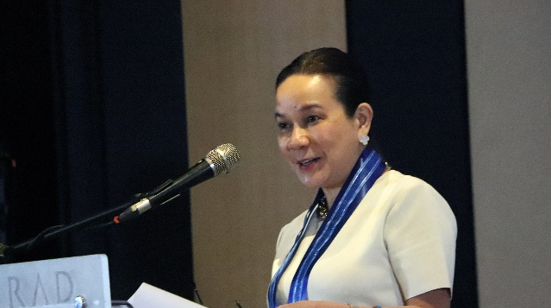USAID, DICT and IBM Launch Philippine Cyber Talent Report to Counter High Risk to Philippine Government and Economy if Cyber Staff Shortages Continue
Nathan Associates, Inc. is part of Cadmus. Original publication date: December 29, 2022.
Manila, Philippines—The United States Agency for International Development (USAID) recently released a report attributing the shortage of cybersecurity talent in the Philippines to the lack of career pathways for practitioners, low salary for locally employed specialists particularly in the public sector, and deficiency in current government frameworks for cybersecurity roles and responsibilities. The report also highlights several key recommendations to jumpstart cybersecurity talent development across the government, academia, and industry to bolster the country’s cybersecurity posture and competitiveness in the information, communications, and technology (ICT) industry.

The report, “National Cybersecurity Talent Workforce Assessment of the Philippines,” written by IBM with the support of USAID’s Better Access and Connectivity (BEACON) project, was presented to an audience of more than 1,000 policy makers, senior government officials, business and academia leaders, and the media during a hybrid launch event on December 7, 2022, at Conrad Manila in Pasay City.
“This report marks a milestone in our aspiration for a cybersecure Philippines where every Filipino can enjoy the benefits of a digital life without fear of attacks,” said Jeffery Goebel, Director, Office of Economic Development and Governance of USAID/Philippines in his welcome remarks.
“Unfortunately, the current state of the cybersecurity ecosystem faces many challenges. These include the dearth of cybersecurity professionals, the lack of schools that offer cybersecurity courses and degrees, and the lack of national understanding about what a cybersecurity framework is or should be,” said Senator Grace Poe in her speech on institutionalizing cybersecurity laws at the event.
“Hence, it is critical to ensure that the Philippines has a national policy framework for the protection of digital assets, especially critical information infrastructure against threats that could paralyze our economy and affect the wellbeing of Filipinos,” she added.

During the panel discussion, Senator Sherwin Gatchalian, IBM Philippines President and Country Manager Aileen Jiao, National Security Council Deputy Director General and Chief of Staff Kristel Anne Villanueva-Libunao, and IT and Business Process Association of the Philippines Executive Director for Talent Development Frankie Antolin shared insights on the results of the report, which included elaborating on the proposed solutions with two tracks: the incremental track and the jumpstart or adaptive track.
In the incremental track, the country should undertake awareness campaigns and hiring of more certified cybersecurity experts in government offices. In the jumpstart or adaptive track, IBM recommends clear and concise steps such as appointing an executive agency for cybersecurity, implementing a cybersecurity curriculum, and sponsoring a Philippine National Cyber Consortium, among others.
The panel also recommended making cybersecurity more relevant to create awareness and interest among Filipinos especially students, girls, and persons with disabilities, to address the shortage of cybersecurity professionals and how to bring about a more diverse talent pool.
Further, the panel weighed in on the whole-of-nation approach for cybersecurity posture such as institutionalizing a cybersecurity curriculum and ensuring the development of cybersecurity initiatives alongside digital transformation projects of the government.
“Indeed, this session today is very timely and extremely important because we need to address our cybersecurity status. Our lack of talents and the ability to retain talents is significant,” said Department of Information and Communications Technology (DICT) Secretary Ivan John Uy in his message. “Our cybersecurity framework must be developed and enhanced; our cyber defense infrastructure has to be further strengthened; and our cybersecurity investments have to be in place,” he added.
In a recorded message, Philippines Vice President Sara Duterte said, “We applaud efforts by our government to build cybersecurity technical capacity among our people and in our workforce. Similarly, efforts by our partnerships, such as the work of USAID’s BEACON on training cybersecurity professionals, are very welcome to ensure we are building a safe, secure, and robust cyberspace.”
She continued, “I hope that the activities initiated by USAID, through BEACON, and the recommendations presented in today’s report, will be fully implemented in order to contribute to developing a safe and secure digital economy.”
The launch event was organized by USAID’s BEACON project in collaboration with DICT, IBM, and media partners ANC and Philippine News Agency. USAID’s BEACON project is reinforcing cybersecurity protection by improving the capabilities of the government to prepare and mitigate against cybersecurity threats and strengthening the cybersecurity ecosystem of the country.